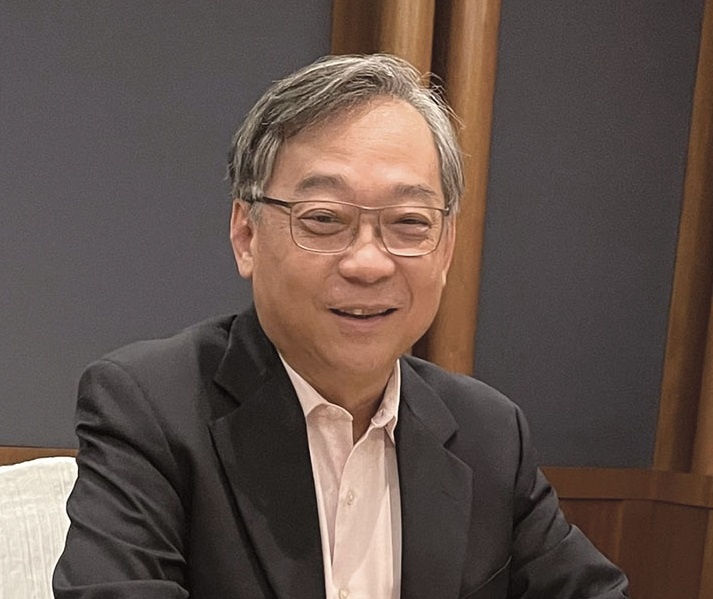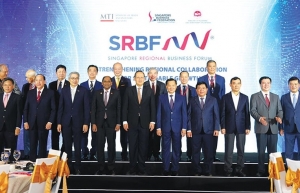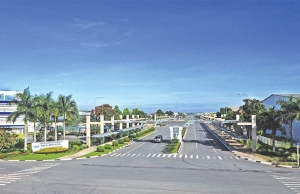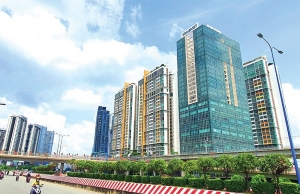Abundant potential for Vietnam-Singapore relations
In February this year, Singapore and Vietnam signed the Green-Digital Economic Partnership MoU. How has this been implemented thus far?
 |
| Gan Kim Yong |
This MoU is critical, and both parties are pushing ahead with forceful collaboration on both fronts. Whether we have the agreement or not, the green economy and digitalisation are going to progress and develop, and these will be strong areas of focus for both countries.
We have a digital economy framework agreement among ASEAN members, and this will provide a basis for cooperation among ASEAN countries. We recognise that ASEAN members may not all be at the same level of progress in terms of digitalisation, and not all of them are ready to do the same thing.
Therefore, there is a diversity among the ASEAN members in terms of readiness and progress of development. While we have the ASEAN Digital Economy Framework Agreement (DEFA), we also encourage members to leverage bilateral exemplary ties to see how we can push ahead with the cooperation in digital economy development.
One area that we are keen to work with Vietnam and other countries is cross-border data flow - how we can ensure interoperability of digital systems, how we can link up with digital payment systems, and how we can use digital means to facilitate trade.
We also have the ASEAN Single Window initiative to facilitate regional trade and economic integration with our trading partners – one just needs to register with a single window and all members can then access it through a common database. This can only be done if it is digitalised. You cannot have a single window with a physical document.
And on the green economy, this is a very new and emerging area for bilateral cooperation. We want to encourage cooperation on various projects, including one on electricity export from Vietnam to Singapore. Perhaps 10 years ago, nobody thought it was possible to bring electricity from Vietnam to Singapore. But now we are seriously discussing how we can have green energy generated from Vietnam and sold to Singapore.
We are also looking at low-carbon solutions under the green economy. Low-carbon solutions will include, for example, reforestation and how we can decarbonise industries. These projects will then create carbon credits, and it also helps Vietnam to achieve their carbon emission targets as committed.
We also work together with Vietnam to develop many of these sustainability-related solutions for both countries, including the development of green technology. For example, the whole world is very keen on developing hydrogen technology. And we are hoping to explore new areas of collaboration in this space, such as how to ensure the safe transport of hydrogen.
The proposed DEFA will start negotiations soon. How will Vietnam and Singapore work together to benefit from it?
There is consensus among ASEAN members that this digital agreement is very critical. It will benefit our industries, particularly domestic ones. But there are also concerns that digitalisation may open up more competition from other countries to compete with local industries. The solution is not to close the door but cooperate and think about how we can help our businesses digitalise.
Digitalisation is unavoidable. Rather than go against it, it is better for us to help businesses be ready for the digital world. The DEFA actually provides the platform for countries to come together to work with one another. Two countries can kickstart the collaboration process and the rest can join in.
Vietnam will be one of the forerunners in digitalisation, and I am quite confident that Vietnam will find it very beneficial. From Singapore’s experience in the last few years, particularly helping smaller businesses digitalise, we need to look at it strategically and in a comprehensive way.
First is to help companies to digitalise their business and sales. During the pandemic, we rolled out digital platforms very rapidly. We wanted to help companies meet their sales targets for about one month or six weeks when we imposed lockdown measures. By diversifying into digital channels, companies now record higher sales volume compared to pre-pandemic when they relied solely on their physical shopfronts.
Secondly, we need to digitalise payment, as it does not make sense to sell digitally but pay in person. We helped companies with their digital payment systems and to train digitally skilled workers. We also quickly realised that we needed to educate the population and pushed out programmes to support our small- and medium-size enterprises and upskill our workforce.
Aside from supporting policies and an enabling ecosystem, is there any other key to making Singapore a successful innovation hub in the region?
Vietnam is growing very rapidly and we have a lot to learn from each other. One key is the importance of keeping our market open, so that Singapore remains open to new ideas and can access global talent.
You can see that many of our innovation projects are not just contained within Singapore. We have collaborations in many countries, and many parts of our research and development require collaboration across borders. For Singapore to become a successful innovation hub, we need to tap up global talent.
So it is important for us to cultivate an ecosystem that allows the two-way flow of research and innovation talent, where both our local researchers and scientists can tap into a global innovation network to scale out of Singapore, and where global talent can anchor themselves to access our world-class research facilities and deepen our ecosystem capabilities.
 | Singaporean interest in Vietnam flourishes Singaporean and regional investment in Vietnam is expected to thrive in the months to come, following a number of cooperation agreements and commitments reached by the two governments last week. |
 | Singaporean developers retain throne in real estate Top Singaporean groups are continuing to make their mark in Vietnam’s real estate arena, from luxury apartments to industrial complexes. |
 | Singapore and Vietnam enter new phase of relations Prime Minister of Singapore, Lee Hsien Loong, will pay an official visit to Vietnam this week. Tan See Leng, Singapore’s Minister for Manpower and Second Minister for Trade and Industry, writes about how both economies can bring their economic ties to greater heights. |
What the stars mean:
★ Poor ★ ★ Promising ★★★ Good ★★★★ Very good ★★★★★ Exceptional
Related Contents
Latest News
More News
- Kurz Vietnam expands Gia Lai factory (February 27, 2026 | 16:37)
- SK Innovation-led consortium wins $2.3 billion LNG project in Nghe An (February 25, 2026 | 07:56)
- THACO opens $70 million manufacturing complex in Danang (February 25, 2026 | 07:54)
- Phu Quoc International Airport expansion approved to meet rising demand (February 24, 2026 | 10:00)
- Bac Giang International Logistics Centre faces land clearance barrier (February 24, 2026 | 08:00)
- Bright prospects abound in European investment (February 19, 2026 | 20:27)
- Internal strengths attest to commitment to progress (February 19, 2026 | 20:13)
- Vietnam, New Zealand seek level-up in ties (February 19, 2026 | 18:06)
- Untapped potential in relations with Indonesia (February 19, 2026 | 17:56)
- German strengths match Vietnamese aspirations (February 19, 2026 | 17:40)

 Tag:
Tag:




















 Mobile Version
Mobile Version